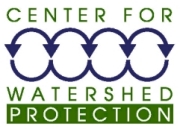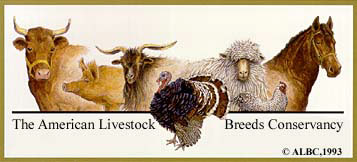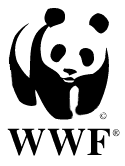| ENVIRONMENT LINKS | NGOs | |
|
|
|
|

|
 |
||||||
"NGO," meaning "non-governmental organization," is a relatively new
term for something that has been around for decades: groups of citizens
organized to advocate improvement of some particular kind. Groups of
citizens have organized
at all geographic scales - from the neighborhood to the globe - to
tackle
environmental problems of common concern. In many cases, the web sites
maintained
by such groups provide important information about - and critical
perspectives
on - environmental matters.
| Special
note
to geographers:
NGOs are not any place to get rich, but many of them do offer geographers fulfilling professional opportunities. Many of the sites below include employment pages. Even if you are not actively looking for a job yet, visit such pages to start learning about the NGO job market. |
The Environmental Defense Fund's (EDF's) Scorecard is an easy-to-use
interface with government reports about chemical pollutants. Use it to
find pollution sources in any community in the United States, and to
find out the health effects of over 5,000 chemicals.

|
The Center for
Watershed Protection works with local, state, and federal governmental agencies, environmental consulting firms, watershed organizations, and the general public to provide objective and scientifically sound information on effective techniques to protect and restore urban watersheds. This site is has a wealth of information about watersheds from geographic, hydrologic, biologic, and regulatory perspectives. |
Sierra Club is one of
America's oldest environmental organizations; it emphasizes the
preservation and appreciation of wilderness. My friend Rex Bouvesett
manages the web site for the Iowa City,
Iowa Chapter.
 |
The Nature Conservancy is
"Nature's real estate agent." Among environmental organizations, we
fill a unique
niche: preserving habitats and species by buying the lands and waters
they
need to survive.
The Nature Conservancy operates the largest private system of nature sanctuaries in the world--more than 1,500 reserves in the United States alone. Some are postage stamp size, others cover thousands of acres. All of them safeguard imperiled species of plants and animals. |
 Since
1967, Environmental Defense (formerly Environmental Defense Fund) has
linked science, economics and law to create innovative, equitable and
cost-effective solutions to society's most urgent environmental
problems. Since
1967, Environmental Defense (formerly Environmental Defense Fund) has
linked science, economics and law to create innovative, equitable and
cost-effective solutions to society's most urgent environmental
problems. |
 GreenNet supports
a progressive community working for Peace, the Environment, Gender
Equality
and Social Justice, through the use of Information Communication
Technologies
(ICTs). GreenNet supports
a progressive community working for Peace, the Environment, Gender
Equality
and Social Justice, through the use of Information Communication
Technologies
(ICTs). |
The International Fund for Animal
Welfare -- headquartered on Cape Cod in Yarmouth Port -- works to
improve the welfare of wild and domestic animals throughout the world
by reducing commercial
exploitation of animals, protecting wildlife habitats, and assisting
animals
in distress.
 |
| The Land Trust Alliance promotes voluntary land conservation and strengthens the land trust movement. |
The Conservation Law Foundation (CLF)
is a nonprofit, public interest, member supported environmental
advocacy
organization, which uses a wide variety of strategies to find solutions
for
New England's most pressing environmental and public health problems.
Its toolbox includes legal skill, of course, but also technical
expertise in science,
economics and policy making.
The Institute for Cultural
Landscape Studies at Harvard University works in the overlap among
three interrelated fields: historic preservation, natural areas
conservation, and land use
planning.
 |
The American Livestock Breeds Conservancy works on an important but little-discussed environmental problem. Modern agriculture achieves high productivity at the expense of diversity with crop and livestock species. The ALBC works diligently to preserve strains of livestock that might otherwise become extinct. See the web site for information about why this is important and lists of endangered breeds. |
 |
The Cyberpanda site is dedicated to the preservation and appreciation of pandas, of which only about 1000 remain in the world. |
The Cheetah Conservation Fund (CCF) researches and implements strategies for cheetah conservation in its natural habitat. From its Namibian base, the CCF works with countries that have wild cheetah populations.
Rain forest Action Network - just what the name implies.
Defenders of the Rain forest is a British student environmental group.
Earth WINS is dedicated to supporting activism for the environment, peace, justice, human rights, Native Americans, and Indigenous peoples with a special emphasis on unsafe mining and reform of corporate law and business practices. At this site, people can obtain and distribute news and information about activism around the world, as well as a place where people can share their ideas, stories, visions and prayers for/about humanity and Mother Earth.
Bridging The Gap (BTG),
a Kansas City based not-for-profit organization, unites the business
community, local government, and citizens in a common search for
solutions to environmental problems. Since 1991, BTG has been
intimately involved in community based environmental action in greater
Kansas City, including waste prevention,
environmental education, residential recycling, and the promotion of
business
recycling efforts. I mention it here because I used to live in Kansas City (long before BTG was
established) and also because this broad-based community effort might
be a good model for
other urban areas.
 |
World Wildlife Fund is dedicated to the preservation of wildlife habitat. |
Worldwatch Institute monitors trends in population and critical resources. World Resources Institute does similar work and has a somewhat stronger reputation for reliability.
EarthFirst! is a self-described radical environmental group, known for its association with a protest/sabatoge strategy known as monkeywrenching. Both of the EarthFirsters I've met (including founder Dave Forman) have left for more mainstream environmental efforts, but EarthFirst is still around, publishing a journal both on paper and online (though I note it has not posted any issues since before September 11, 2001. Earth First
Paul Ehrlich and the Population Bomb is a Public Broadcasting
Service documentary about the work that introduced the term "population
explosion." The Population
Bomb web site displays a constantly updated estimate of the world's
population and covers any aspects of population growth.
 |
One kind of NGO is the professional association. The National Association of Environmental Professionals (NAEP) is an excellent resource, both for environmental professionals and for students of the environment. Student membership is available. Even if you are not a member, the library at NAEP's web site is an excellent source of information about environmental protection, industrial monitoring, and the like. |
The National Religious Partnership for the Environment is a formal alliance of major faith groups and denominations across the spectrum of Jewish and Christian communities and organizations in the United States. This article explains some of the thinking of behind the group.
The Global Development And Environment Institute (GDAE) is a research institute at Tufts University dedicated to promoting a better understanding of how societies can pursue their economic and community goals in an environmentally and socially sustainable manner.